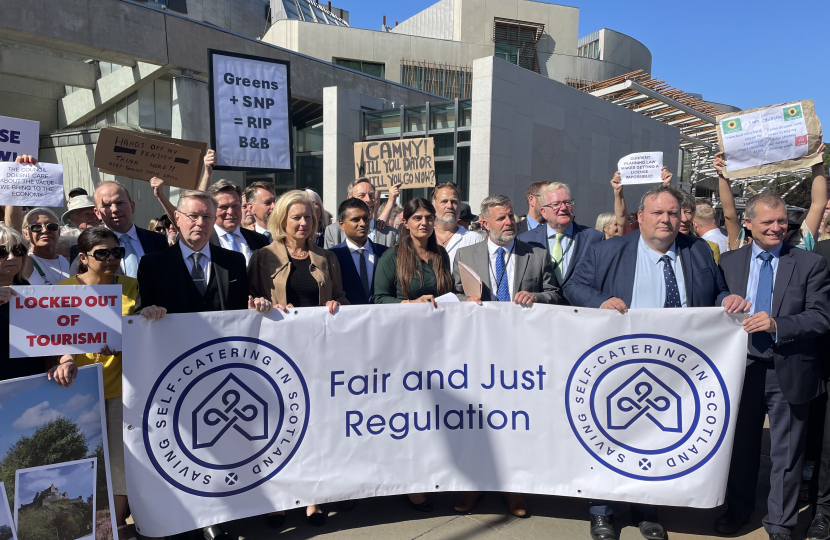
I don’t know if Edinburgh Council’s senior officers inadvertently gave the game away about short-term lets in a committee report this week, but the cat is out the bag that they expect their new rules will slash the sector by four-fifths.
The detail was tucked away in the notes at the end of a Tourist Tax paper, but how they calculated an 80 per cent fall is unclear because although all operators large and small must now obtain a licence, it’s impossible to know how many will be compliant before applications are assessed.
What if they all met the requirements? Council leader Cammy Day can protest all he likes that the number was just a guesstimate to help judge how much money the Tourist Tax would raise, but he would say that wouldn’t he, and it’s there in black and white.
To hit a specific number requires a target, but that would concede the licensing system was unfair because a well-run, fully compliant operation would be rejected because the quota had been met, not for failing to meet the required standard.
Having lost one judicial review and facing a second, this could easily lead to a third legal challenge if it’s shown the council intends to take money for applications it knows have only a 20 per cent chance of success.
Killing off 80 per cent of Edinburgh’s STL market could cost the Council anything up to £4m in lost licence application fees, and on top of the estimated £0.5m administration cost it would be a significant inroad into projected Tourist Tax revenues of between £5.6m and £39.2m.
It wants to raise as much as it can, while also seeking to hobble an important part of the sector it hopes will lay golden eggs for what, judging by this week’s report, looks like anything which springs to mind, from funding the Festivals to subsidising public transport.
It’s no wonder 85 per cent of Edinburgh people who responded to a 2018 consultation supported the Tourist Tax principle because most people have paid similar charges on their holidays, and it’s not hard to think of something the council isn’t doing which it might fund.
But despite assurances from SNP public finance minister Tom Arthur that the Scottish Government won’t indirectly claw back the revenue by cutting the block grant, as it does for business rates, the legislation contains no such guarantee.
Mr Arthur won’t be public finance minister for ever, and as Edinburgh is currently the worst-funded local authority in Scotland per head, the SNP has a track record of short-changing the capital.
As well as the council itself, hotels and guest houses ─ and the few Airbnbs the authority allows to survive ─ could incur huge inconvenience and cost in gearing up for collecting the levy, only for the benefit to be sucked back into the Scottish Government’s pot by the back door.
Nor does the legislation cover business tourism, creating a loophole which is a recipe for confusion and evasion.
There is a long way to go before the charge can be introduced, the middle of 2026 at the earliest, and a lot of work will be needed to make sure this doesn’t turn into another disaster like the deposit return scheme. The hospitality industry has had enough already.

